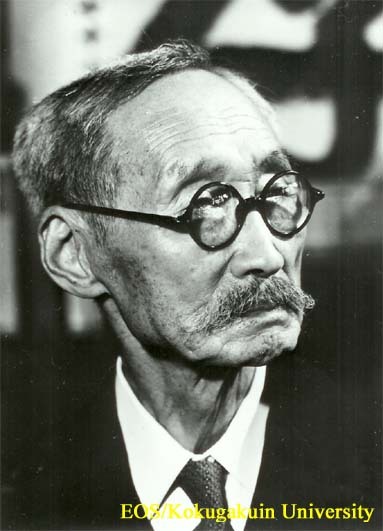- トップ
- Encyclopedia of Shinto
- Kakei Katsuhiko
Encyclopedia of Shinto
| Main Menu: | |
| Links: |
詳細表示 (Complete Article)
| カテゴリー1: | 8. Schools, Groups, and Personalities |
|---|---|
| カテゴリー2: | Personalities |
| Title | Kakei Katsuhiko |
| Text | (1872-1961) A Shinto intellectual and scholar of public law from the Meiji to the Showa eras. Born on the twenty-eighth day of the eleventh month of 1872 in Suwa, Nagano Prefecture. After graduating from Tokyo Imperial University's School of Law, he studied administrative law in Germany for a five-year period beginning in 1898. Upon his return to Japan he was appointed professor at the Imperial University's School of Law where he taught administrative law. He subsequently held additional posts teaching jurisprudence and constitutional law. After the controversial debate regarding the constitutional status of the emperor as an "organ of the state" (Tennō kikan setsu jiken) in 1935, Kakei worked as a senior councilor at the Ministry of Education, and upon retiring from the University of Tokyo he took teaching posts at Kokugakuin University and Tokyo Higher Normal School. In the course of his research on the intrinsic nature of the state, Kakei expanded his inquiry into studies of the Emperor system and Shinto, and he utilized the "way of the gods" (kannagara no michi) based in so-called "ancient Shinto" (koshintō) to propound his own unique theories of Shinto theology and constitutional law. Kakei died at his home in the town of Hayama, Kanagawa Prefecture at the age of eighty-eight. He was the author of Dainippon teikoku kenpō no nemotogi, Koshintō daigi and Kōkoku shinten shiyōshō, among other works. -Ōhara Yasuo |




